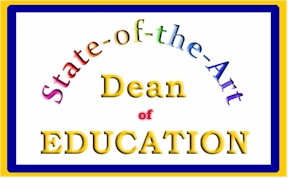
|
The George Washington University |

|
The George Washington University |
 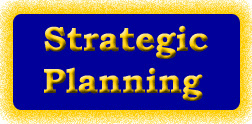 |
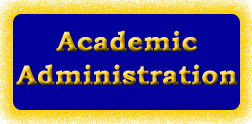 |
 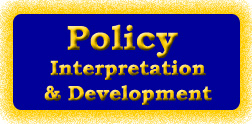 |
A third set of Skills that the Dean of the School of Education Needs to Have in order to be a State-of-the-Art Dean is the Academic Administration Skills: s/he should have a successful record as an academic administrator in higher education, including
- responsibility for personnel recruitment, and evaluation
- interviewing, hiring, and training employees
- planning, assigning, and directing work
- appraising performance
- rewarding and disciplining employees.(How to...)
- addressing complaints and resolving problems
- substantial knowledge of K-12 education.
Topics for Interview Questions:
1. Job related training, experience, skills and qualifications
2. Education and licensing
3. Work history and responsibilities
4. Conviction of a crime other than minor traffic violations –
5. Gaps in employment as noted on the application or resume
6. Whether the candidate is legally eligible to work in the United States
7. Whether a candidate can meet the work schedule
8. How their work experience to date and skills relate to the job for which they have applied.
9. Ask what contributions they feel they would make to the department, should they be hired.
10. Level of responsibility in their current job or a previous job.
11. What they believe to have been their most significant challenges and accomplishments in their current job or a previous job.
12. What their salary requirement would be for the position if selected as the final candidate and/or give the candidate, in general terms, a range within which the salary could fall. You should, however, state clearly that the discussion is not a job offer or a guaranteed salary level if a job offer is extended at a later date.
13. Suggest that the candidate review the benefits information available on the HRS web site and provide the candidate with the phone number for the Benefit Services Division if they have any questions.
14. Ask if they have any questions about the job.Subjects That May Not Be Addressed In Employment Interviews
1. Age
2. Alcohol or Drug Use
3. Birthplace
4. Citizenship
5. Marital status and family status [For example, questions concerning the number of children a candidate has, child care arrangements, or whether the candidate intends to have children.]
6. Arrest record
7. Sexual preference
8. Religious or political affiliations
9. National origin [Lineage, ancestry, descent, mother tongue, including national origin of parents.]
10. Frequency of change of address
11. Personal lifestyle [For example, questions concerning candidate's living arrangements.]
12. How ability to write or speak a foreign language was acquired
13. Credit history or status of personal finances
14. General health, or physical or mental disabilities]
15. Worker's compensation claims made in the past
16. Personal appearanceEmployment Interviewing Guidelines
In his bestseller titled "Good to Great," Jim Collins (2001) covers the best practices to adopt when hiring:
1- When in doubt, don't hire... keep looking
2- When you know you need to make a people change, act!
3- Put your best people on your biggest opportunities, not your biggest problems. (You need to have inventoried opportunities and problems)Turn problems into opportunities... How can solving the problem create a bigger opportunity?
Delegate... Delegate...Delegate!
"The term performance appraisal has been called by many names, including performance review, performance evaluation, personnel rating, merit rating, employee appraisal or employee evaluation.
A performance appraisal has been defined as any personnel decision that affects the status of employee regarding their retention, termination, promotion, transfer, salary increase or decrease, or admission into a training program."
http://iso9k1.home.att.net/pa/performance_appraisal.html
http://www.telework.gov/documents/tw_man03/CH5.ASP
http://www.businessballs.com/performanceappraisals.htm
360 Degree Performance Appraisal Questionnaire- Templates for Nonprofit Organizations operating under Policy Governance Model
"How to Measure Employee Performance" by Jack Zigon
Performance Management is NOT an Annual Appraisal- From Susan M. Heathfield,
Successfully Integrating Total Quality and Performance Appraisal- By Kathleen A. Guinn
Performance Management: Not Just an Annual Appraisal- (If you think performance appraisal is something managers need to be doing year-round, you're confusing it with something else!) By Kathleen A. Guinn *** (Pwd. req.)
How to Measure White Collar Employee Performance- By Jack Zigon *** (Pwd. req.)
Addressing Complaints and Resolving Problems: (Teams)
Allow every member to state his or her opinion. Excluding a member's ideas, even if they are unpopular, will lead to resentment and will sacrifice group cohesion.
Don't come to consensus too quickly. Especially when teams are in the "forming" stage, members are so afraid of conflict that they come to consensus on a particular point that is inappropriate or incorrect. This "dumbing down" process hurts the quality of the team's performance and causes members to believe they could do better on their own.
Don't attack a member personally. Members should learn to separate incorrect or implausible ideas or conclusions from the person who states them. Criticisms should focus on task-oriented issues and not on personal attributes. This keeps arguments on a professional level, instead of degenerating into immature name calling, etc.
Summarize the conflict. What starts as a small difference of opinion can soon appear to be a large conflict. Sometimes it is useful to summarize and list what both sides agree about and disagree about. By acknowledging the common ground, factions are better able to compromise.
Switch sides. Blinded by their own ideas, sometimes people fail to see obvious virtues of another person's ideas. As a way to force members to really consider the other side of a conflict, students can try to argue the opposing viewpoint. Though it may be difficult at first, it can bring to light a solution that had not earlier been considered.
Tell a joke. When the team atmosphere is tense due to extended conflict, it helps for someone to "lighten up" by adding some humor to the situation. Such brief "tension breakers" can put the conflict into perspective.
Take a break. Sometimes, despite every constructive effort, members cannot resolve a conflict. In this case, the best thing to do is take a break (with the intention of coming back to the issue): move on to another agenda item or get away from one another for a time.
Involve an unbiased third party. A class intern can provide an unbiased opinion in a dispute or help mediate a problem. The team should involve the course instructor only as a last result because it could end up causing more harm than good.
http://dhc.ucdavis.edu/fh/tw/3conflict.html
GW offers a lot of workshops related to academic administration; among those workshops:
- Managing a Culturally Diverse Workforce- Robert Brady
- International Credential Evaluation workshop- Dr. James Frey
- Best Practices from Good to Great
- GW Data Mart User Conference- Michael Wolf
- Basic Benefits- Mamie L Roberson (Benefits Handbook)
- Equal Employment Opportunity and Affirmative Action- Robert Brady, SPHR (more info- pwd. req.)
- Compensation & Salary Administration- Ronald White
- Compliance Awareness Training- Vincent A. Lacovara III, J.D. (more info- pwd. req.)
- Pinnacle Telemanagement System- David O-Brien; Chris G. Megill
- GW Data Marts- New User Training- Jim Miller; Susan Dastour
- Payroll- Shelley Rich
- Performance Analysis and appraisal- Sharon Lincoln (more info- pwd. req.)
- Communicating in Difficult Situations- Erica Bush
- University Forms: Supply Chain- Lennox Jones (more info- pwd. req.)
- KRONOS TRS System- Payroll Time Keeping- Claire Mooney
- Staff Employment and Interviewing- Ron White
- Apply Yourself- Clint Williams
- Banner- Justin Mass
- Enterprise Accounting System (EAS) / Oracle- Joyce Cage
- P-Card- George Bedford
 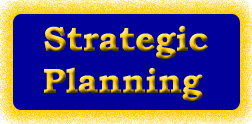 |
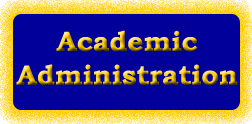 |
 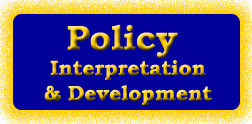 |
![]()
Dean's
Roles & Responsibilities | Relevant
Quotes about Education | References
| Relevant
Links
Top
Schools of Education: Mission Statements
(Sources
/ Education Deans: Position Descriptions)
Page Created on November 20,
2007 || Last updated on December 17, 2007
Copyright ©
2007 Nada M. Salem
https://www.nadasisland.com/dean